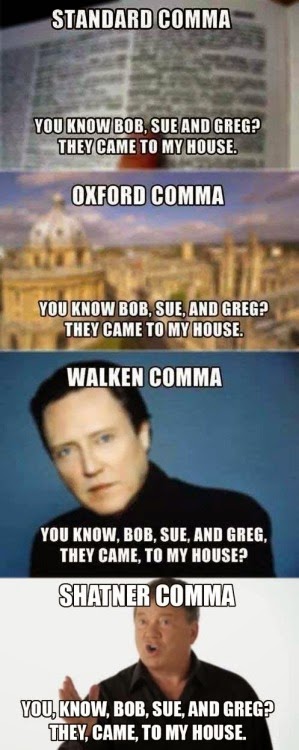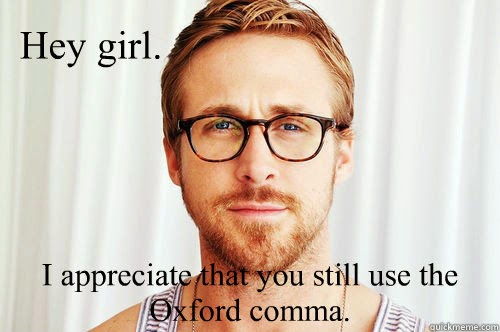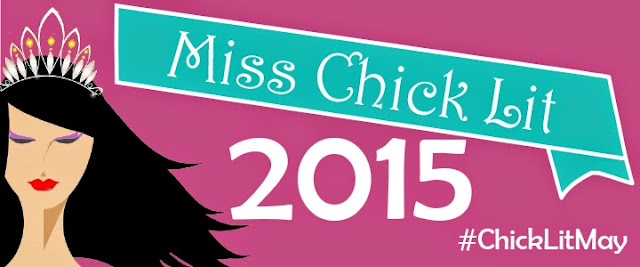My Life Was Changed By A Standard Comma
Last night I was having a conversation with a friend about those missed opportunities in a Sliding Doors (if you've never seen the Gwenyth Paltrow movie, you really need to check it out) sort of way. You know, one small interaction can drastically change the outcome of a situation. Then, I posted a funny meme on my author page about commas.
Way back in the day, I was taught to use the standard comma, as illustrated above. Only recently, when trying to name my book, Jump, Jive, and Wail, did I, at the advice of my author posse, start using the Oxford comma.
After looking at this meme, I realized that the standard comma changed my life. Way back in 1997, when I was still in college, Congress passed this thing called the Balanced Budget Act of 1997. A lot of people probably don't remember it. I do, because it hit along with a major reform in insurance reimbursment. As a result of the BBA, there was a spending cap put on, amongst other things, outpatient therapy services that Medicare paid for. This was a big thing in the Physical Therapy world. It meant that people who have Medicare for their insurance (you know, people over 65 who tend to have a lot of health problems, joint replacements, injuries, etc. and need therapy) now had a limit on how much therapy they could receive. Here's where the comma comes in. In the BBA, it listed a $1760 cap on outpatient therapy services: OT, PT and Speech. How that played out was there was a $1760 cap on OT services and a $1760 cap on PT and Speech services combined. This was especially impactful in people who had strokes, where motor and speech skills can be affected.
How did this change my life? Easy. Insurance stopped paying for endless therapy, which meant the money stopped coming in. PT places were laying off PT's and forget about getting a job as a brand-new graduate in 1999-2000. My best friend got laid off and I was unemployed. I interviewed and sent out resumes, but to no avail. We ended up moving to Ohio, where we both found employment. It was then that I met my husband and the rest, as they say, is history.
Now, I don't know why or when people decided to stop using the Oxford comma. I distinctly remember learning not to use it when I was growing up.
I can't say I'm sorry that a comma changed my life. I'm pretty happy with where I am now. It's just a little odd to think about something so small, that could have made such a big difference.
But I'm doing my darndest to use the Oxford comma. I think I've conquered the whole two spaces after a period thing.
Way back in the day, I was taught to use the standard comma, as illustrated above. Only recently, when trying to name my book, Jump, Jive, and Wail, did I, at the advice of my author posse, start using the Oxford comma.
After looking at this meme, I realized that the standard comma changed my life. Way back in 1997, when I was still in college, Congress passed this thing called the Balanced Budget Act of 1997. A lot of people probably don't remember it. I do, because it hit along with a major reform in insurance reimbursment. As a result of the BBA, there was a spending cap put on, amongst other things, outpatient therapy services that Medicare paid for. This was a big thing in the Physical Therapy world. It meant that people who have Medicare for their insurance (you know, people over 65 who tend to have a lot of health problems, joint replacements, injuries, etc. and need therapy) now had a limit on how much therapy they could receive. Here's where the comma comes in. In the BBA, it listed a $1760 cap on outpatient therapy services: OT, PT and Speech. How that played out was there was a $1760 cap on OT services and a $1760 cap on PT and Speech services combined. This was especially impactful in people who had strokes, where motor and speech skills can be affected.
How did this change my life? Easy. Insurance stopped paying for endless therapy, which meant the money stopped coming in. PT places were laying off PT's and forget about getting a job as a brand-new graduate in 1999-2000. My best friend got laid off and I was unemployed. I interviewed and sent out resumes, but to no avail. We ended up moving to Ohio, where we both found employment. It was then that I met my husband and the rest, as they say, is history.
Now, I don't know why or when people decided to stop using the Oxford comma. I distinctly remember learning not to use it when I was growing up.
I can't say I'm sorry that a comma changed my life. I'm pretty happy with where I am now. It's just a little odd to think about something so small, that could have made such a big difference.
But I'm doing my darndest to use the Oxford comma. I think I've conquered the whole two spaces after a period thing.





I am a major Oxford comma proponent. For one thing, I don't want to have to evaluate every sentence with a list to see if it's okay with or without the comma before the conjunction. I just put the comma before the conjunction, and there's no room for misinterpretation. I don't know why people are so set against it. Are they THAT stingy (or lazy) with commas that they just can't bear to use one before a conjunction? Puh-lease. I'm glad it all worked out for you after college (everything happens for a reason, right, even a missing comma?), but think of all those people who didn't get the therapy they needed because of a stupid mechanics rule. Well... maybe we SHOULDN'T think of that. It won't change anything to be mad about it now, I suppose.
ReplyDeleteI think until I read this blog I didn't really understand the Oxford comma and what it could or could not mean. I'm sure I will still make a mess of it, but I will endeavor to improve my usage. It has always seemed odd to put a comma after "and," but I will now. Thanks for the well illustrated lesson!
ReplyDeleteAwesome post, Kathryn! I'm always afraid I over-comma things. :) Have just kicked the two spaces after the period thing. This is my next project!!! :)
ReplyDelete